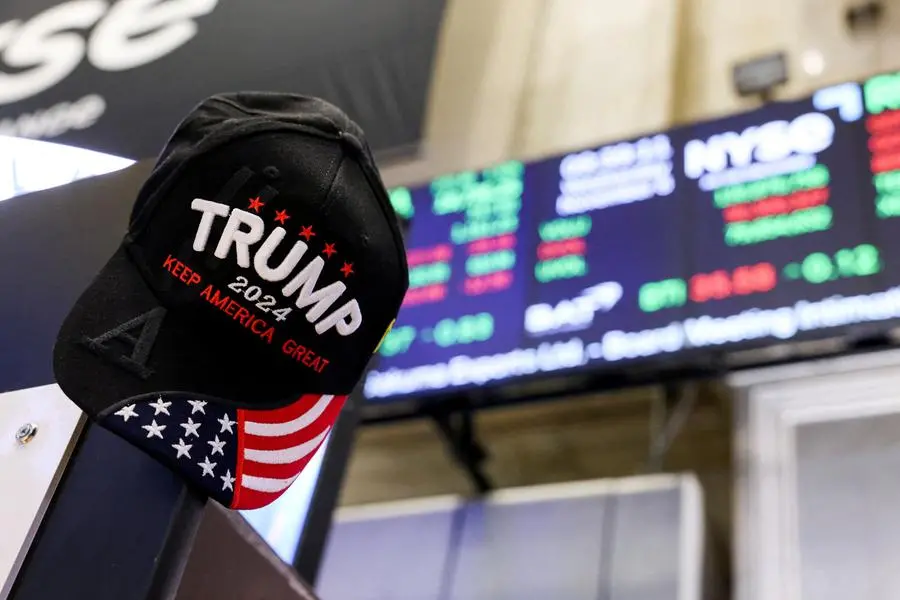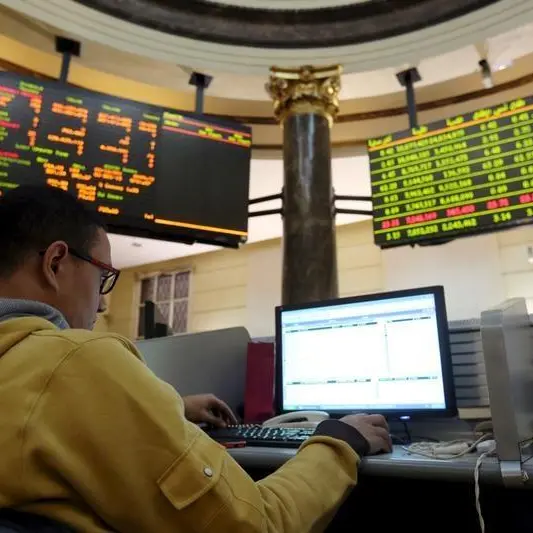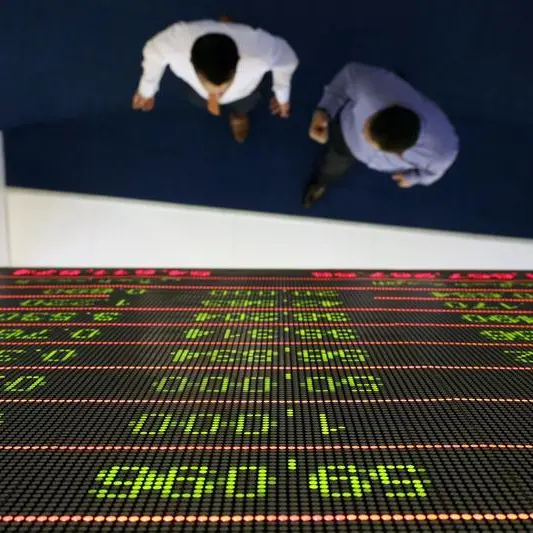PHOTO
Global capital markets dislike uncertainty, and after the decisive election of the next president of the US on Tuesday, a huge ambiguity vanished. That Donald Trump – a vociferous champion of deregulation – was elected only added fuel to the fire of optimism about the future of capital raising. Unabashed dealmaking is back.
The S&P 500, Nasdaq and Dow Jones indices hit record highs on Wednesday after the Republican’s conclusive victory became certain. Stocks of the five major US investment banks, whose CEOs regularly bemoan constricting capital rules, soared between 8% and 13%, while shares of publicly traded private equity shops, also part of the so-called Trump trade, rose.
US investment-grade and high-yield corporate bonds recorded their tightest average spreads since the 2008 financial crisis, although benchmark Treasury yields rose.
For many on Wall Street, the ascendence of Trump is a dream come true. The former and future president personifies wide tax cuts, broad deregulation, acquisitive growth – and sizeable trade tariffs.
The chances are now good that bank capital rules will be watered down and antitrust authorities will be much more permissive. Gone are the days of Joe Biden's administration blocking C-suite decision-making.
The finance industry hopes banks that can deploy more capital and companies that can more freely consolidate will translate into more issuance in the equity and debt markets, and the kind of new money issuance bankers and investors have been desperate for.
“While all sectors will experience increased dealflow, the sectors that will have the most significant increase in consolidations are tech, healthcare and financial services,” said Frank Aquila, a partner at law firm Sullivan & Cromwell. “With the prospect of increased tariffs, non-US companies will be looking to make acquisitions here, particularly in the manufacturing sector, both to avoid the tariffs and to increase their North American market share.”
Build back bigger
This will be welcome amid a lacklustre M&A market this year. While global announced M&A in the first 10 months of 2024 hit US$2.57trn, increasing 10% on the same period last year, according to LSEG data, the figure is down 17% from the average for the period over the previous 10 years.
A lot of factors come into play when companies decide to merge and acquire, but heightened antitrust enforcement by the Federal Trade Commission under the Biden administration, including blocking the merger of JetBlue Airways and Spirit Airlines this year, certainly played a role.
The benefits of a stronger M&A market will trickle down to capital markets, particularly equities.
David Erickson, adjunct professor at Columbia Business School and former global head of ECM at Barclays, said he expects more private equity-backed companies to come to market now that the uncertainty of the election has been removed.
“The election is behind us, and we don’t have to worry about what unfolded four years ago,” Erickson said, referring to the contested election result in 2020. “The past four years have not been the most constructive M&A market, given the FTC’s approach.”
Erickson pointed out that an environment that is conducive to M&A also encourages more IPOs.
“One of the catalysts often for an IPO is the positives that could come from a company doing M&A or being a possible takeover candidate,” he said.
One head of equity syndicate in London put it a little more simply. “It’s a clearing event for the market. People will look to put risk on, which is conducive to transactions,” he said.
Treasury yields
The prospects for debt issuance, however, are a little more complex. While buyers are going to need to borrow to fund the expected increase in acquisitions, including leveraged buyouts, the potential for Trump’s mooted policies, especially the tariffs and debt-fuelled tax cuts, to put inflationary pressure on the US economy has helped push up yields over the past couple of months.
“This outcome has definitely created some questions for the market to get to grips with,” said Edward Marrinan, macro strategist on SMBC Nikko Securities America’s credit trading desk. “Issuance prospects have arguably been somewhat dampened by the very significant backup in yields that we have witnessed.”
The yield on the 10-year Treasury has climbed from 3.60% in mid-September to about 4.40% on Wednesday.
“It is absolutely true that prospective issuers will look at that and ask is now the best time to issue when yields are backed up like this,” he said. “And whatever momentum we get from tighter credit spreads, it still creates higher all-in funding costs.”
Nonetheless, Marrinan said higher rates are unlikely to stymie the expected merger momentum.
“Under Trump, I think M&A activity would pick up considerably and I think it would be sensitive to, but not daunted by, higher funding costs that we see with this backup in yields,” he said.
The Carlyle Group CEO Harvey Schwartz said on Thursday the initial boon of the election was that it “removed market uncertainty”.
“Over the medium to long term, this should be a further catalyst for IPOs, M&A and key sectors,” he said during the alternative asset manager’s earnings call.
“From a policy perspective, whether it’s sustained or further cuts in the tax regime, whether it’s a lighter regulatory touch, all these things will get translated in CEOs’ minds, boards, or portfolio companies [into] confidence around the operating environment, and that will lead to more decision-making.”
Asia impact
In Asia, the sharp rise in Treasury yields means borrowing costs have risen for US dollar bond issuers.
"Some Asian corporates were waiting for the election to be over so rates would stabilise, and they are now realising that was the wrong move," said a Singapore-based analyst.
Many issuers in the region had already completed the bulk of their fundraising for the year, but those wanting to sell offshore bonds are likely to delay their plans.
“A lot of corporate issuers are going to push back to January now," said an Asia DCM head. "I see a lot of people sitting on their hands until next year.”
While absolute US dollar yields are higher, spreads in Asia have actually tightened and some higher beta credits, like Tier 2 paper, have performed well.
“Fixed-rate issuers won’t want to come until rates settle down, but spreads have actually compressed in the past few months so I think you could see financial institutions issuing floating-rate notes in the remainder of the year,” said the DCM head. “It is amazing how the market shrugs off political events though.”
A credit analyst in Asia said issuers with good market access onshore would probably focus on domestic bonds, and non-banking financial companies might pause plans to issue US dollar bonds.
"On the macro front, a strong US dollar is not a good sign for emerging market flows," said the credit analyst.
Hong Kong's Hang Seng Index dropped 2.2% on Wednesday and the mainland CSI 300 benchmark dipped 0.5% as investors anticipated heightened tensions between the US and China and more tariffs on Chinese goods.
US tariffs could motivate an increase in Chinese M&A as companies there become more domestically focused.
“Even during Trump’s [previous] administration, companies knew that they had to merge to survive. Domestically there may be more mergers,” said Alicia Garcia-Herrero, chief economist for Asia-Pacific at Natixis.





















